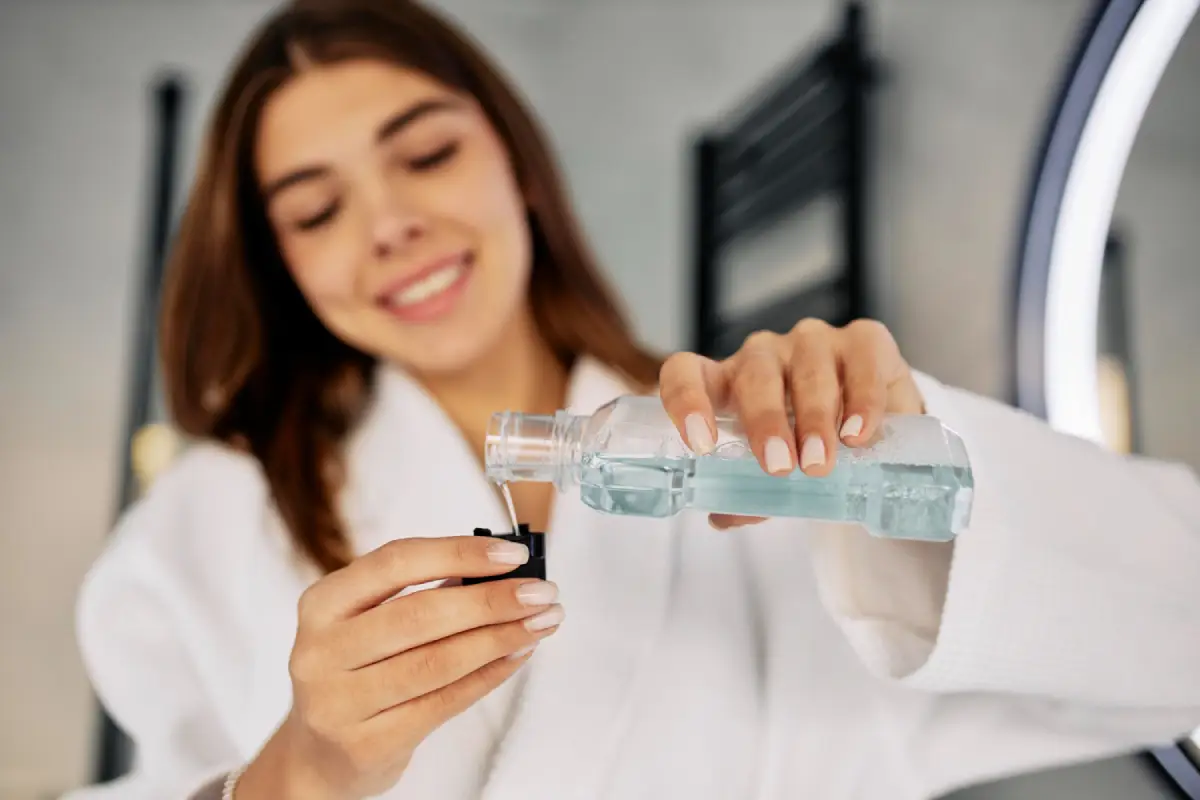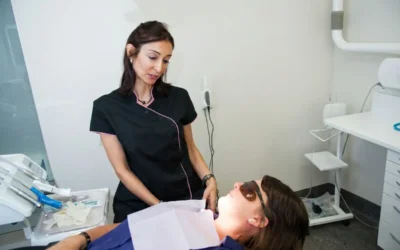Mouthwash has always been promoted as the finishing touch to a perfect oral care routine — swish, spit, and you’re left with nothing but a minty-fresh breath. But does using it every day really help, or can it sometimes do more harm than good? Let’s look at what dental experts say.
What Mouthwash Actually Does
Mouthwash may be used for various reasons based on the ingredients included. A Mouthwash is formulated to leave your breath smelling fresh and also lower the bacteria responsible for plaque, gum issues, as well as tooth decay.
Some mouthwashes have fluoride in them, which is used to fortify the enamel, whilst others are designed to calm inflammation or tooth sensitivity.
Therapeutic mouthwashes, usually recommended by dentists, go beyond simply freshening your breath. They are often advised to help manage gum disease, reduce mouth infections, or strengthen tooth enamel — especially those containing fluoride, which helps harden and protect your teeth.
Mouthwashes that are available to buy over the counter are known to be more “cosmetic”, providing temporary freshness without any therapeutic benefit /effect.
When is a Mouthwash Useful?
Mouthwash can be useful in certain circumstances:
1. After meals: It can rinse away remaining food particles and bacteria.
2. For gum problems: Certain Antibacterial mouthwashes can help kill bacteria that cause gum disease.
3. For preventing cavities: Fluoride mouthwash is important to strengthen & protect the teeth against acid attack.
Additionally, when you wear braces or any dental appliance, Mouthwash liquid can find its way into areas that your toothbrush or floss may not reach.
Your dentist may suggest using a mouthwash as an added benefit, but never as a replacement for brushing and flossing.
When must you avoid using a mouthwash?
Most mouthwashes have alcohol content in them, which can lead to irritation and dry mouth. Also, products that contain alcohol can also interfere with the natural balance of good bacteria and can alter the balance of the oral flora in your mouth, which can result in long-term problems such as bad breath.
Using mouthwash too frequently can also work against you. If you’re rinsing after brushing teeth with fluoride toothpaste, you will wash away some of the fluoride designed to safeguard your teeth.
Selecting the Right Type
1. If you have a sensitive mouth, consider an alcohol-free mouthwash or one that contains calming ingredients such as aloe vera or xylitol.
2. To protect yourself from cavities/toothache, you can consider using a fluoride-based mouthwash to rinse your mouth.
3. Those who are under gum disease treatment can use an antiseptic mouthwash as recommended by their dentist.
The important thing is to select the right ingredient in your mouthwash that meets your unique oral health requirements.
Expert Recommendation
Dentists generally agree that mouthwash can be helpful when used correctly — once or twice a day is sufficient. It should never replace brushing and flossing, but rather complement them. If you’re unsure which mouthwash is best for you, it’s worth consulting the best dentist in Maroubra. They can assess your gums, enamel condition, and sensitivity to suggest the right formula.
Mouthwash is not bad for you — but neither is it a must-have for everybody. Used judiciously, it can revitalise your mouth, guard against germs, and complement your oral hygiene practice. But use the right kind and not too often.
Your best smile always begins with educated decisions — and occasionally, a good rinse makes all the difference.
Book an appointment with Gentle and Caring Dentistry and get answers to all your dental problems.




